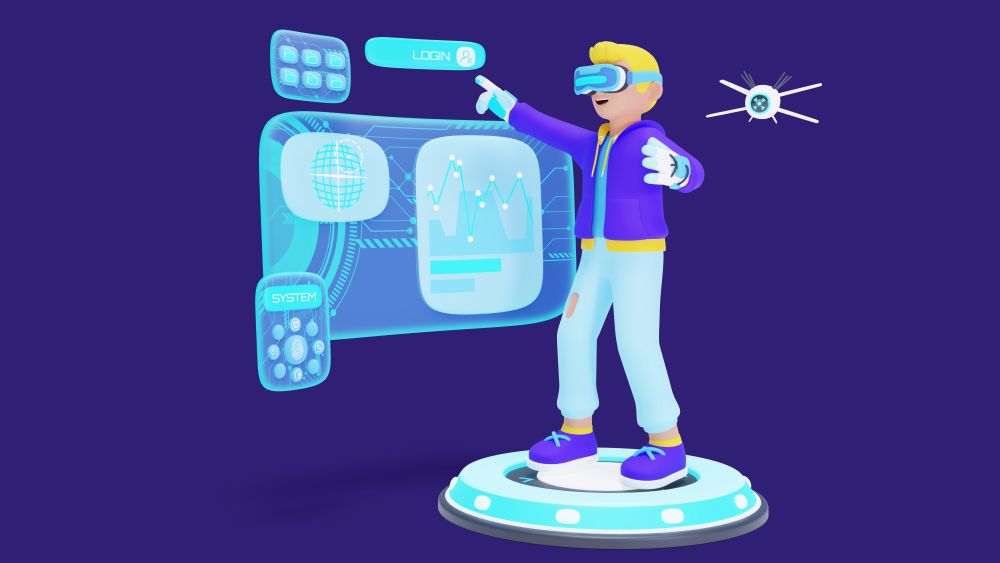
Why AI is a Business Imperative Today
In today’s competitive digital landscape, Artificial Intelligence (AI) has moved from buzzword to business necessity. As companies face pressure to increase efficiency, reduce costs, and deliver personalized experiences, AI offers a strategic advantage by automating tasks, uncovering insights, and enabling smarter decision-making.
According to McKinsey, businesses that implement AI at scale have reported a 20–30% improvement in operational performance. Whether you’re a global enterprise or a scaling startup, integrating AI into your business processes can unlock substantial value across the board.
In this blog, we’ll explore the five most impactful benefits of AI integration for enterprise solutions—and how forward-thinking companies are leveraging this technology to stay ahead.
1. Enhanced Operational Efficiency Through Automation

One of the most immediate and measurable benefits of AI is its ability to automate repetitive and time-consuming tasks. From back-office functions like invoice processing and HR management to customer-facing roles like chat support, AI-powered automation tools can execute tasks faster, more accurately, and around the clock.
Real-World Impact:
• RPA (Robotic Process Automation) tools integrated with AI can reduce manual workflows by up to 80% in some departments.
• AI chatbots are now handling over 85% of customer queries without human intervention, according to Gartner.
Business Outcome:
• Reduced operational costs
• Increased employee productivity
• Faster turnaround time on core processes
Pro Tip: Start with automating routine tasks and scale gradually into more complex, cognitive automation like intelligent decision-making or predictive analytics.
2. Smarter Decision-Making With Predictive Analytics

Enterprises generate massive volumes of data every day, but without the right tools, that data remains underutilized. AI transforms raw data into actionable insights using machine learning algorithms, data mining, and statistical models. This enables leaders to make proactive, evidence-based decisions rather than relying on intuition or historical trends alone.
Applications:
• Sales Forecasting: AI models predict buying patterns and revenue pipelines.
• Supply Chain Optimization: Anticipate delays and optimize resource allocation.
• Customer Churn Prediction: Identify high-risk customers and take preemptive action.
Business Outcome:
• Improved agility and responsiveness
• More accurate forecasting
• Enhanced ROI through data-driven strategy
Pro Tip: Combine AI with a robust business intelligence (BI) platform for real-time dashboards and predictive KPIs.
3. Personalized Customer Experiences at Scale

Today’s customers expect more than just products—they expect personalized, seamless experiences across all digital touchpoints. AI makes this possible by analyzing user behavior, preferences, purchase history, and contextual data to deliver highly relevant content and interactions.
Examples:
• AI-Powered Recommendation Engines: Suggest products or services based on browsing and buying patterns.
• Natural Language Processing (NLP): Enables chatbots to provide human-like, real-time support.
• Dynamic Content Delivery: Personalize web experiences in real-time based on user actions.
Business Outcome:
• Higher engagement and satisfaction
• Increased conversion rates and lifetime customer value
• Strengthened brand loyalty
Pro Tip: Implement AI-driven personalization across channels—web, mobile, email, and support—for a unified customer experience.
4. Improved Security and Risk Management

AI isn’t just about innovation and automation—it’s also becoming a key player in enterprise security and compliance. AI algorithms can continuously monitor systems, detect anomalies, and respond to threats in real-time, often before human teams even become aware of them.
Use Cases:
• Fraud Detection: AI models analyze transaction patterns and flag suspicious activity instantly.
• Threat Intelligence: Monitor network traffic and user behavior for potential breaches.
• Compliance Auditing: Ensure adherence to data privacy laws like GDPR and HIPAA.
Business Outcome:
• Reduced exposure to cyber threats and fraud
• Faster incident response times
• Stronger compliance posture and reduced penalties
Pro Tip: Pair AI with human oversight for a hybrid approach that balances speed with critical thinking.
5. Accelerated Innovation and Competitive Advantage

Perhaps the most transformative aspect of AI integration is its ability to fuel innovation. With AI handling data analysis, content creation, and even product testing, businesses can bring ideas to market faster and with greater confidence.
Innovation Pathways:
• AI-assisted Design: Generate product prototypes and iterate based on user feedback.
• AI in R&D: Analyze scientific data to accelerate research outcomes.
• AI-Powered Content Creation: Create dynamic training modules, marketing copy, and more.
Business Outcome:
• Shorter product development cycles
• New revenue streams through intelligent services
• Differentiation from slower-moving competitors
Pro Tip: Create a dedicated AI innovation team or partner with AI experts to pilot new use cases.
Embrace AI to Future-Proof Your Enterprise
From streamlining operations to revolutionizing customer engagement, AI integration is proving to be a catalyst for enterprise growth and resilience. Businesses that invest in AI now are not only improving their current capabilities but also future-proofing their operations for the digital economy.

At Edpilot Studio, we help businesses harness the power of AI with customized, scalable solutions tailored to your unique challenges and goals.




